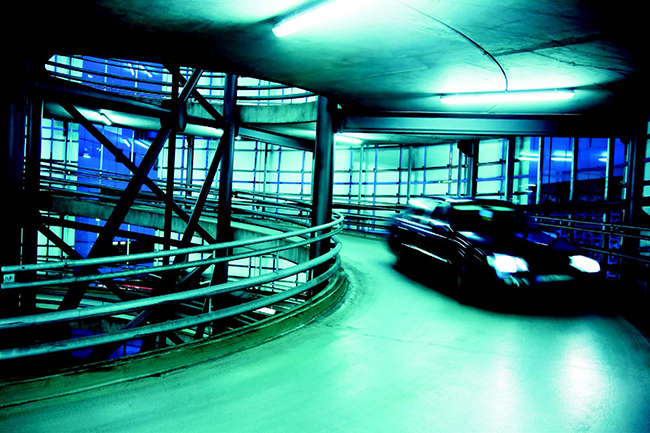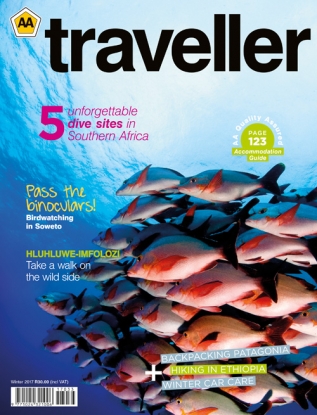These days, cyberspace guardian angels make it possible to monitor the whereabouts of your car and, if required, its occupants. Mike Monk reviews one of SA’s top tracking companies, and assesses what all this means for your vehicle insurance
For most of us, the ownership and use of a vehicle is a major factor in our day-to-day living. Generally speaking, it signifies the second most expensive outlay (after buying a home) from our finances, and its steep running costs absorb quite a significant amount of our total monthly income. Consequently, whether it is used for pleasure, business or both, it needs to be adequately protected at all times. Not only that, but in the event of anything untoward occurring, the occupants in the vehicle need to feel secure too, so a full-time ‘eye in the sky’ has a few obvious benefits.
Already on many premium-priced vehicles in the marketplace, telematics is embracing vehicle monitoring. By combining a GPS (Global Positioning System) with on-board diagnostics, it is possible to record and map exactly where a car is, how fast it’s travelling, and then cross-reference these with how a car is behaving internally. Combined with communication over a 3G network, telematics can be used to send data and communications back and forth between your vehicle and a central management system. As an extension of this capability, some ‘connected car’ features such as live weather, traffic and parking info, apps and even Facebook integration are options that could come in handy while you are on the move.
First, though, let us take a look at some of the questions to ask before you start thinking about subscribing to a tracking service.
- How good is the company’s stolen-vehicle recovery rate?
- What is the annual cost escalation?
- How widespread is the coverage? Some systems become inactive in certain mountainous or rural areas.
- What warranties or guarantees does the system offer?
- And, not least of all, before making a decision, go online and have a look at some customer blogs and comments on their experiences.
Independent surveys have shown that Ctrack is one of the country’s leading tracking companies. ‘Our success is down to our technology and ongoing research and development, which we need to stay ahead of the criminals. Combined with a passionate and very capable recovery team, we provide solutions that keep our customers’ vehicles visible at all times,’ says Pierre Bruwer, MD of Ctrack.
Ctrack uses GSM (Global System for Mobile communications) cellular and GPS satellite communications that allow pinpointing a stolen vehicle in real time. This provides a recovery team with a significant advantage over the tracking companies that keep using traditional passive radio-frequency-based systems (RF). RF devices require activation before they start transmitting a signal and then they only give an area that needs to be searched in order to uncover a vehicle’s location. ‘Although we use helicopters, we merge their capabilities with the various ground crews at hand. Our system provides the exact location of the vehicle, enabling the rescue team to get to the site in the shortest possible time,’ Bruwer adds.
For further peace of mind, under the title Advanced Protector, Ctrack also offers additional value-added services and support systems. These include benefits such as SOS panic, medical and roadside assistance and Home Drive. ‘We have always focused on providing reliable vehicle tracking to our customers as we know someone’s life may depend on it. Currently, our GPS/GSM-based tracking solutions are exceptionally price competitive with the traditional passive systems, which is making quality systems more accessible to everyone,’ concluded Bruwer.
But what effect does a tracking system installation have on insurance premiums?
As a rule, neither brokers nor under- writers are prescriptive on which tracking company to use, although some do have industry partners. The vehicle, its value and where it is usually kept are critical factors and it is up to the underwriting company to determine whether or not fitment is compulsory. If fitment is compulsory, discounts or lower excess rates are usually applied to the client’s premium. However, voluntary fitment will bring about a definite saving to help offset the cost of the tracking system, the amount depending on the type of system fitted.
The bottom line seems to be that the more tracking systems are installed, the greater the chances are of recovering stolen or hijacked vehicles, which will have a positive impact on insurance premiums and payouts. And in the event of an accident, rapid emergency assistance is at hand, no matter where you are.
For more information on Ctrack, call 0860 333 444, or visit www.ctrack.co.za.
Photography istockphoto
(This article was first published in the autumn 2016 issue of AA traveller magazine)





